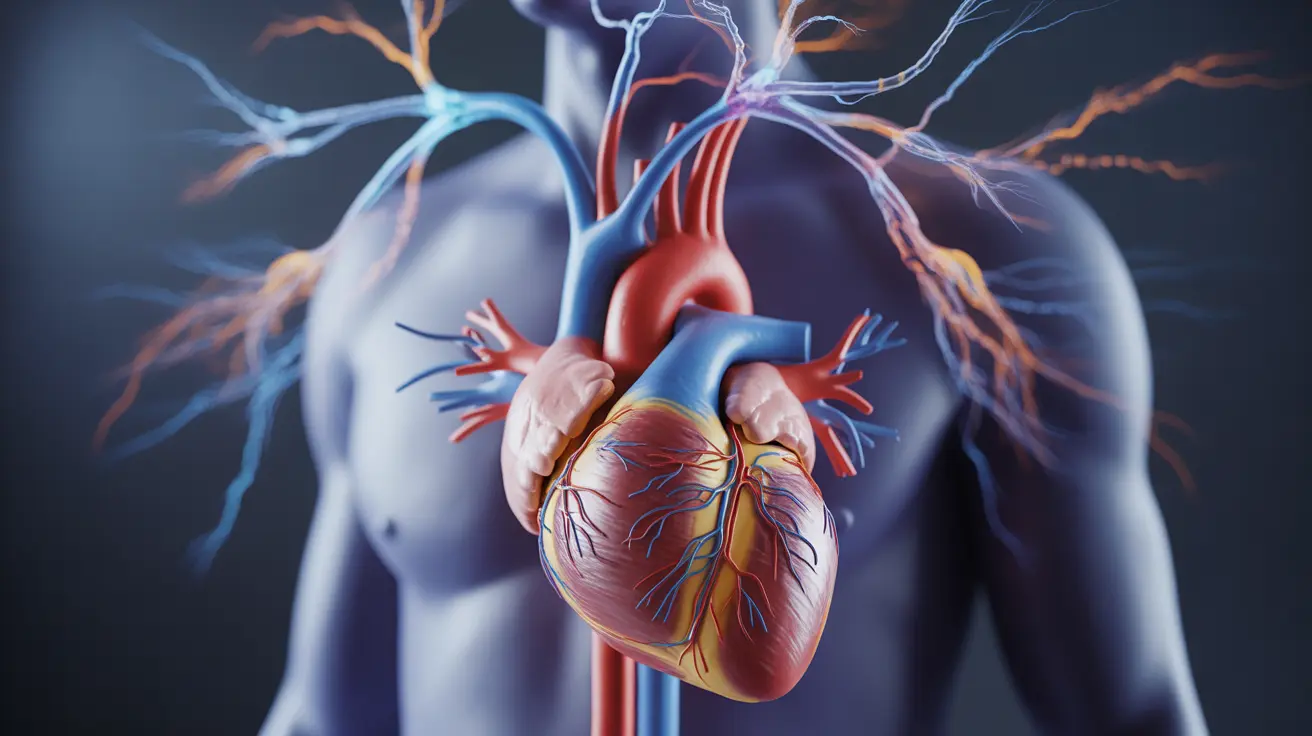The relationship between seizures and heart problems is a critical medical concern that affects many people with epilepsy and their caregivers. While seizures primarily affect the brain, they can have significant impacts on heart function, potentially leading to serious cardiac complications. Understanding this connection is essential for proper medical care and prevention of life-threatening situations.
This comprehensive guide explores the complex relationship between seizures and heart health, including how seizures can affect heart rhythm, warning signs to watch for, and when to seek immediate medical attention.
The Link Between Seizures and Heart Function
During a seizure, the brain experiences sudden, uncontrolled electrical activity that can affect various body systems, including the cardiovascular system. This neural disruption can trigger changes in heart rate, blood pressure, and cardiac rhythm, potentially leading to serious complications.
Impact on Heart Rhythm
- Tachycardia (increased heart rate)
- Bradycardia (decreased heart rate)
- Arrhythmias (irregular heart rhythms)
- In rare cases, asystole (temporary stopping of the heart)
Understanding the Risks
While not every seizure leads to heart problems, certain factors can increase the risk of cardiac complications:
- Duration of seizures
- Type of seizure (particularly generalized tonic-clonic seizures)
- Pre-existing heart conditions
- Age and overall health status
Warning Signs and Symptoms
Key indicators that may signal cardiac involvement during or after a seizure include:
- Chest pain or pressure
- Difficulty breathing
- Unusual paleness or bluish skin color
- Extended period of unconsciousness
- Irregular pulse
Emergency Response and Prevention
Knowing when and how to respond to seizure-related cardiac events is crucial. Immediate medical attention is necessary if:
- The seizure lasts longer than 5 minutes
- Multiple seizures occur without recovery between them
- The person experiences chest pain or breathing difficulties
- There's no pulse or breathing after the seizure
Diagnosis and Treatment Approaches
Healthcare providers may use various methods to evaluate and treat seizure-related cardiac issues:
- Electroencephalogram (EEG)
- Electrocardiogram (ECG)
- Heart rate monitoring
- Blood tests
- Imaging studies
Frequently Asked Questions
Can a seizure cause a heart attack or serious heart rhythm problems? Yes, seizures can potentially trigger serious heart rhythm problems and, in rare cases, contribute to cardiac events. The electrical disruption in the brain during a seizure can affect heart function, leading to arrhythmias or other cardiovascular complications.
How can seizures trigger dangerous arrhythmias like ventricular tachycardia or asystole? Seizures can activate the autonomic nervous system, which controls heart rate and rhythm. This activation can lead to dangerous arrhythmias through disrupted electrical signaling between the brain and heart.
What symptoms can help me tell the difference between a seizure and a heart-related syncope? Seizures typically involve jerking movements, loss of consciousness, and confusion after the event. Heart-related syncope usually involves lightheadedness before fainting, quick recovery, and possible chest discomfort.
When should I seek emergency care if someone has a prolonged seizure or suspected heart arrhythmia? Seek immediate emergency care if a seizure lasts longer than 5 minutes, if multiple seizures occur consecutively, if the person has difficulty breathing, or if they show signs of cardiac distress such as chest pain or irregular pulse.
How are seizures and cardiac arrhythmias diagnosed and treated to prevent complications like SUDEP? Diagnosis typically involves comprehensive testing including EEG, ECG, and medical imaging. Treatment may include anti-epileptic medications, heart rhythm medications, lifestyle modifications, and regular monitoring to prevent serious complications like SUDEP (Sudden Unexpected Death in Epilepsy).




